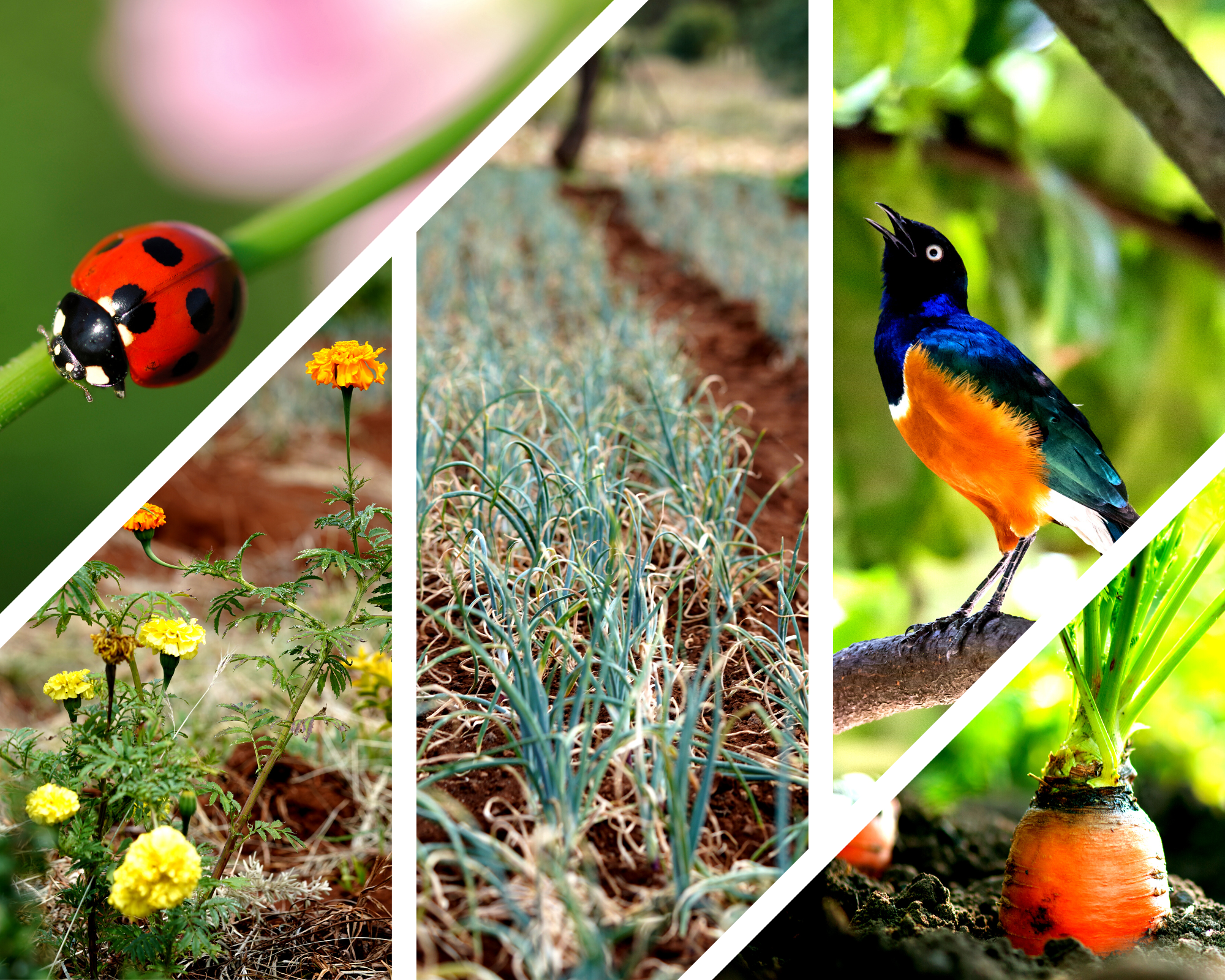
At Ambokili Farm, we’re passionate about organic farming and believe a healthy ecosystem breeds healthy food. That’s why we embrace organic permaculture – a holistic approach that promotes sustainable food production in harmony with nature. A key element of this philosophy is Natural Pest Management (NPM). It keeps unwanted critters at bay while maintaining organic integrity. We implement these practices throughout the growing season, adjusting our strategies based on pest pressure, weather conditions, and crop stage.
What is Natural Pest Management?
Natural Pest Management (NMP) involves employing organic, non-toxic methods to deter, eliminate, or manage pest populations. It harnesses the power of nature’s own mechanisms, such as beneficial insects, plants, and cultural practices, to maintain a balance between pests and beneficial organisms in the ecosystem. It focuses on creating an environment that discourages pests and encourages beneficial creatures that naturally keep them in check.
Why Natural Pest Management Matters
The practice of Natural Pest Management aligns with our values of caring for planet, people and life. By avoiding harmful chemicals, we protect our soil, water, and air from pollution, safeguard biodiversity and promote the well-being of our farm workers and consumers. Additionally, Natural Pest Management contributes to sustainable food production by preserving natural ecosystems and reducing dependence on external inputs.
Compelling reasons Why we embraced NPM:
Safeguards People’s Health: Chemical pesticides leave residues on produce, potentially leading to health risks. The residues from chemical pesticides can also be accidentally ingested by farm workers leading to health problems. NPM ensures your food is healthy and safe for you, your family and our workers.
Protects the Environment: Chemical pesticides pollute soil and waterways, harming beneficial insects and disrupting the delicate balance of the ecosystem. NPM promotes a healthy environment for everyone. NPM keeps our planet healthy for generations to come.
Sustainable Solution: Pests can develop resistance to chemical pesticides, rendering them ineffective over time. NPM fosters a long-term solution by promoting a balanced ecosystem.
A Thriving Ecosystem: NPM fosters a balanced ecosystem where beneficial insects like ladybugs and birds control harmful pests.
Natural Pest Management Methods at Ambokili Farm
At Ambokili Farm, we integrate Natural Pest Management into our organic permaculture practices through a combination of methods:
African Merigold (stronger than Mexican Merigold) and Mexican Merigold are used to make compost tea and repels a variety of crop pests.
- Companion Planting: We strategically interplant pest-repellent species such as onions and garlic with our main crops because of their ability to deter aphids, nematodes, and other insect pests. These companion plants release natural compounds that deter pests enabling us to maintain organic integrity.
- Farm-made Sprays: We create natural insecticides using readily available ingredients like neem, Mexican Merigold, African Merigold, Mexican sunflower (Tithonia diversifolia), and Tephrosia. These are soaked for potency for about 2 weeks and then used to deter pests.
- Biological Control: The Superb Starling (Lamprotornis superbus) for example, is a natural predator of pests. The Superb Starling is omnivorous, feeding primarily on insects and other small invertebrates. While they don’t specifically target pests, their diet often includes insects that can be considered pests to humans, such as grasshoppers, beetles, and At Ambokili Farm, they’ve been especially helpful in controlling the maize stalk borer and Fall armyworm. Superb Sterlings help control insect populations naturally.
- Cultural Practices: We employ cultural practices such as crop rotation and the use of onion and garlic as natural repellents to disrupt pest life cycles and minimise pest damage.
- Beneficial Bug Buffets: By planting flowering plants, we attract beneficial insects like ladybugs that prey on harmful pests.
At Ambokili Farm, we believe that natural methods offer the most sustainable and responsible approach to pest control. We encourage everyone to learn more about and advocate for NPM. By embracing this practice, we can ensure a healthy future for our food, our environment, and ourselves. Natural pest management isn’t just good for Ambokili Farm; it’s good for everyone.
Consider incorporating natural pest management techniques into your own garden and advocating for their use in your community!
Join us in advocating for Natural Pest Management as a fundamental practice in organic agriculture.
